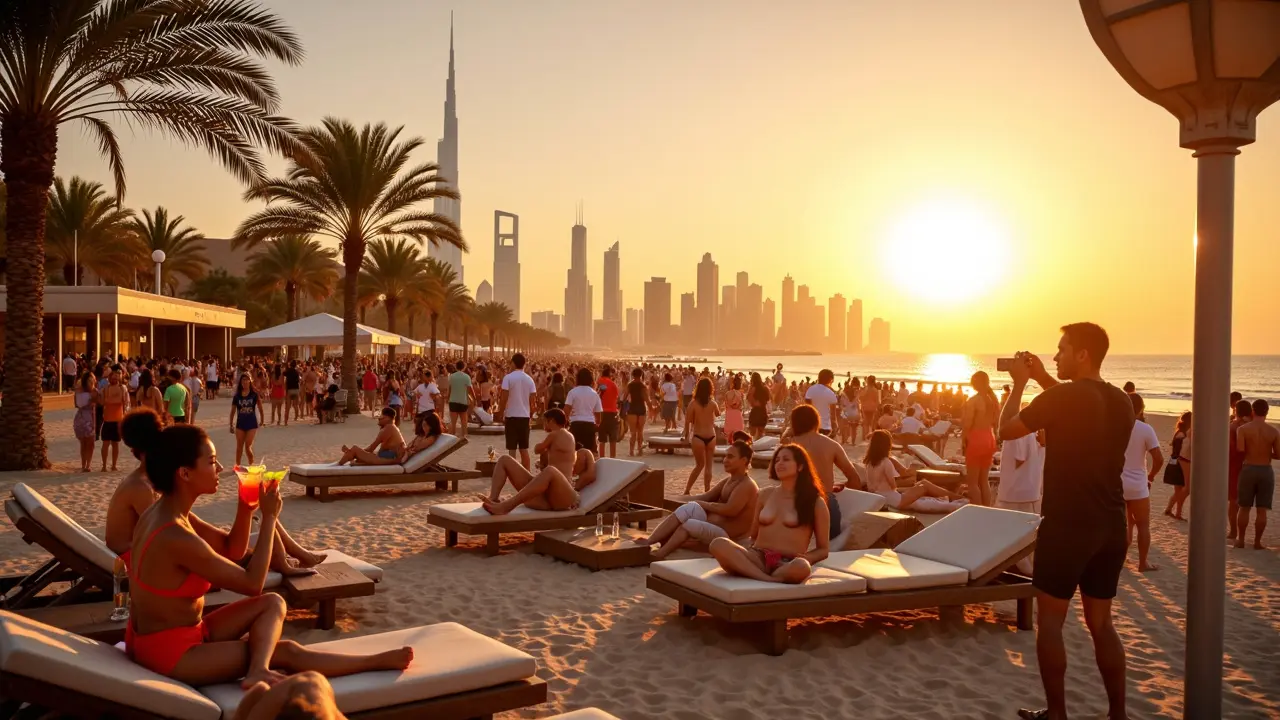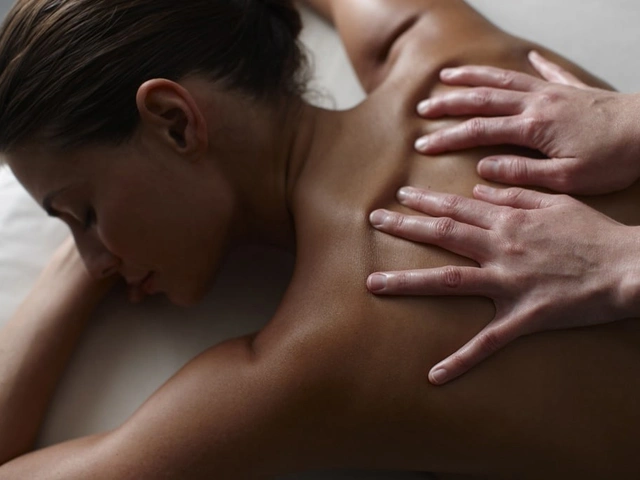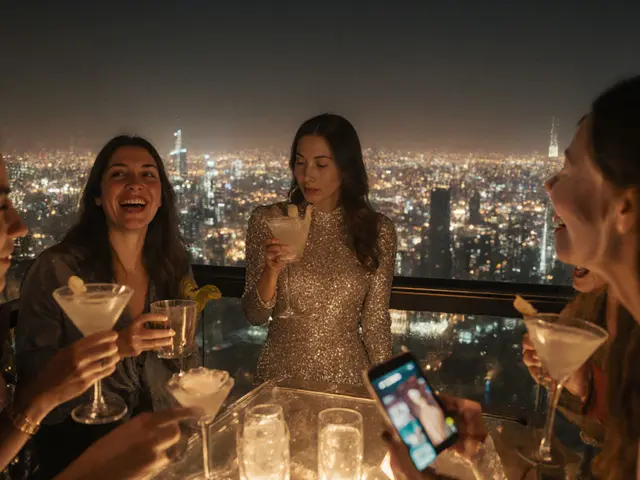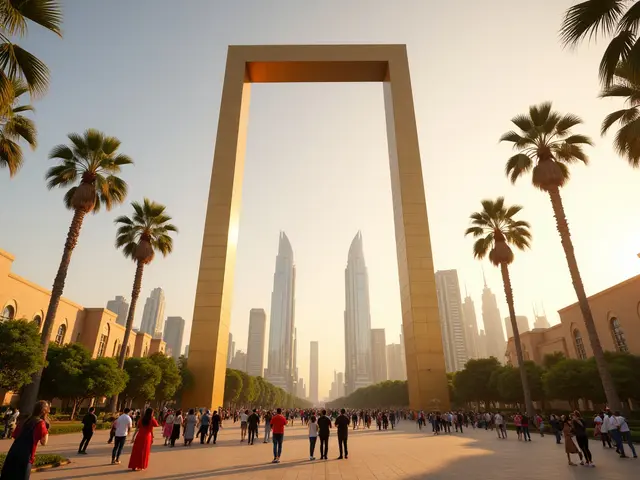If you’ve spent any real time in Dubai, you know the beach club scene here is more than just poolside lounging. You’ll hear the bass first, maybe catch the scent of sunscreen tangled with truffle fries, and suddenly you’re in the middle of a mini city that’s equal parts day party and design showcase. The beach clubs in Dubai are proper institutions: they blur the line between resort relaxation and night-out buzz, and each one manages to stamp its own cultural identity. But what actually sets Dubai’s beach clubs apart from their rivals in Saint-Tropez or Bali? And what should you know about this sun-drenched scene if you’re living, working, or raising a family in the UAE?
The Unique DNA of Dubai Beach Clubs
Spend a weekend at Cove Beach, Nikki Beach Dubai, or White Beach and you’ll notice—this isn’t just about the Instagram. You’re entering a space where Emirati hospitality is woven into every sunbed arrangement, while the cuisine openly flirts with Japanese, Italian, or Mexican influences. Many Dubai beach clubs offer butler service, custom-tuned music playlists created by award-winning DJs, and menus shaped by Michelin-starred chefs (that lobster roll at WHITE Beach is no joke). If you’re after stats, Dubai was home to more than 30 high-end beach clubs as of March 2024, with an annual market valuation of around AED 2.3 billion.
What’s behind the Dubai twist? For starters, you’ll notice family-friendly facilities aren’t a box-tick afterthought—the best clubs run full schedules for kids (Elodie, my daughter, couldn’t get enough of the beachside painting sessions at Azure Beach). Alcohol service is confined to selected zones, and respectful swimwear policies mean you’ll want to double check club rules before turning up. Many residents appreciate these cultural boundaries; they help keep the vibe fun yet respectful. Importantly, unlike European beach clubs, Dubai’s venues rarely allow single-gender groups of men (this keeps the overall energy balanced and makes for a more welcoming vibe—one tip if you’re hosting visitors from abroad).
Daybeds here can run between AED 300 to AED 1500, but weekday offers often make a club session surprisingly affordable; drop into Surf Club Dubai mid-week and you’ll spot a throng of freelancers turning the beach into their remote office, laptops balanced next to iced lattes. Staff are from everywhere—South Africa, the Philippines, Jordan, Russia—and that global mix filters into the clubs’ events calendars: think sunset SUP yoga, K-pop DJ nights, and Mediterranean seafood pop-ups in one week. There’s a subtle hierarchy to Dubai’s beach club scene: places like Nammos and Twiggy by La Cantine pull in the international celebrities with covert VIP sections and high-end sushi, while spots like Bla Bla Beach keep it accessible for millennials, families, and groups craving a more open, festival-style energy.
Climate, of course, shapes everything. In July and August, smart clubs wind down daytime offerings and lean into evening pool parties, BBQs, and movie nights under mist fans and cooling arches. It’s very Dubai to see a club transform from daytime chill-out retreat to full-scale party zone by night, with strict rules making sure noise and behavior are always kept within respectful boundaries.
How Beach Clubs Everywhere Compare
It’s easy to think all beach clubs are cut from a similar cloth, but every country throws its own flavor into the mix. Flip open Ibiza’s Cotton Beach Club menu and you’ll find basic sangria and paella. In Dubai, the food leans elevated and fusion—tuna tacos traded for wagyu sliders and sashimi platters with gold leaf (a nod to the city’s obsession with luxury, if you ask me). Compare that to Mykonos’s beach parties: wild, windswept, sometimes barely organized, with dancing on the sands until sunrise. Dubai prefers structured programming and a curated crowd; you’ll rarely see actual wildness on the dance floor—the vibe is more after-brunch chic than full-moon free-for-all.
Let’s talk dress code. At a club in the French Riviera, you can roll up in swim trunks and a faded band tee. Here, you’ll want to aim higher, mixing tasteful dresses, tailored shorts, or resort-casual shirts (plenty of residents choose local brands like Kage or S*uce for their wardrobe). Kids run free at many Dubai clubs, but security always keeps an eagle eye—families appreciate the calm and convenience, especially at venues with shaded pools, kids’ menus, and crèche services. Some clubs even give out beach toys or organize scavenger hunts for little ones so parents can actually enjoy a cocktail in peace.
Music is another split. The hottest Dubai clubs bring in international DJs, but they also slip in local Arabic tracks or ’90s throwback sets during family hours. In Malaysia, or even the US, you’d hear reggae, indie, or hip hop on the sand, while Marbella might layer in Spanish pop. This means that you can hop across continents and know instantly where you’ve landed, just from the soundtrack. Dubai does a solid job blending global favorites with the local soundtrack—don’t be surprised to hear the beats dip into Khaleeji pop just as the sun sets.
Here’s a look at how Dubai compares to other famous beach club destinations:
| City | Average Entry Fee (AED) | Key Features | Peak Season |
|---|---|---|---|
| Dubai | 300–1500 | Family spaces, diverse cuisine, fusion DJs | October–April |
| Ibiza | 200–800 | Wild parties, late nights, basic food | June–September |
| Saint-Tropez | 400–1800 | Celebrity scenes, Euro DJs, fine wines | July–August |
| Bali | 80–400 | Bali sunsets, casual wear, pool parties | April–October |
| Miami | 300–1200 | Latin vibes, craft cocktails, open all year | December–March |
You can spot Dubai’s fingerprint in the emphasis on mixed-use spaces and carefully regulated service. Most European or US clubs flow with alcohol from noon; Dubai’s clubs are split, with dry areas for those who want them—hugely important for locals or anyone hosting guests from diverse backgrounds. No other market puts as much thought into blended crowd curation, safety, and culinary upgrades, perhaps because Dubai’s visitor base ranges so widely from Saudi weekenders and Thai backpackers to Emirati families and British retirees.
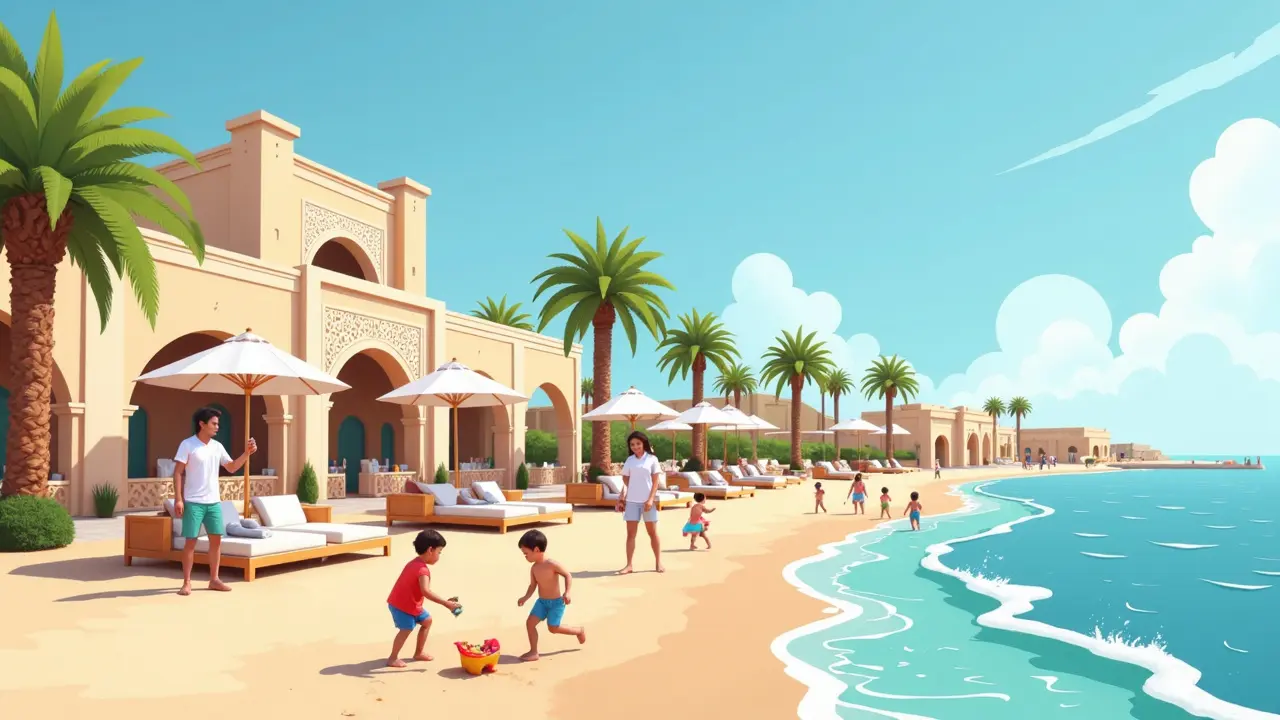
Local Etiquette, Culture, and Family Fun
The unwritten rules for enjoying a Dubai beach club keep everyone happy. You’ll want to dress smart, especially if you’re heading indoors to dine or heading for sunset drinks. Clubs like Jetty Lounge quietly enforce footwear rules—forget muddy sandals, and swap them for slip-ons or sandals you wouldn’t be embarrassed to wear to a five-star brunch. While you’re free to take photos, don’t point your camera at other people or children; this is strictly policed in Dubai, especially out of respect for local women. Even as an expat, I remind Elodie to keep snap-happy moments confined to our table. Private cabanas and shaded pool zones give extra privacy, a big draw for families and couples who want to relax without constant attention.
For families, weekends are golden hours. Most clubs run discounted rates for children and offer structured activities. Azure Beach turns its Friday afternoons into a kind of soft play beach carnival—you’ll see pony rides, arts-and-crafts corners, baby pools, and unlimited fresh juice. For tired parents, the attentive staff mean it’s probably the closest you’ll get to actual relaxation outside of a hotel suite. Safety is a non-negotiable: there are certified lifeguards, locked gates to the beach, and wrist-banded check-ins for kids. During school holidays, many clubs offer bundled packages that cover lunch, activities, and pool access—great value versus piecing everything together separately.
Tipping, by the way, is appreciated but not expected; a 10% service charge is usually built into your bill but if the service sparkles, a small thank you goes a long way. Bookings are a must in the cooler season—spots fill fast, especially for the front-row sunbeds. If you like things quieter, midweek mornings are ideal; you’ll often get staff doting on your family, with little wait for food or drinks. Pro tip: pack plenty of high-SPF sunscreen, a coverup, and a change of clothes for kids, as even shaded areas can get toasty by midday.
Some clubs host special cultural events, from iftar nights during Ramadan to Diwali beach parties. You’ll find menus swapping out pork and alcohol for a feast of mocktails, mezze boards, and grilled seafood. Residents love these occasions for mixing social fun with respect for the city’s traditions. Even locals who’ve lived in Dubai for decades find a kind of recalibration at the beach—these spaces let you blend your own background with a little bit of global flavor, all within the safe, sleek comfort of Dubai’s hospitality sector.
The Future of Dubai’s Beach Club Scene
The pace of change in Dubai keeps the city’s club scene moving. Newcomers like Playa Pacha and the highly anticipated Bâoli Dubai are shifting the conversation with jaw-dropping architecture—think infinity pools cantilevered over the sand, pop-up art galleries, and open-air kitchens backed by global culinary stars. New tech also means smart wristbands for ordering food, cooling mist machines, and live social media streams direct from the DJ booth (expect your brunch dance to go viral unexpectedly).
Eco-conscious design is also creeping in. Places like Sal Dubai are using solar panels to power their lighting and recycling grey water for irrigation—a clever twist in a city obsessed with sustainability goals. Some clubs are now banning single-use plastics outright or switching to chic compostable tableware. That said, it’s still a work in progress; for every green initiative, you’ll find a competing club whose carbon footprint could use a diet.
The post-pandemic world means bookings are more digital; you’ll get QR menus sent to your WhatsApp (which, by the way, is the default communication for almost every service in Dubai). Private membership tiers and season passes are booming, offering everything from priority entry to spa discounts. This creates a more loyal fan base and adds a layer of exclusivity that’s less common in other clubbing capitals.
Events are getting bolder: silent discos, movie screenings, even book clubs by the pool. It’s not just about imported champagne and selfies. These clubs want to become destinations for art, food, wellness, and networking—locals, expats, singles, and families mixing naturally. You won’t find every club surviving the rapid pace (rents are steep and trends shift quickly), but the survivors will be the ones that master Dubai’s balance of inclusivity, luxury, and family appeal. There’s always space for a new idea or twist, whether that’s a zero-waste menu or a healing sound bath at sunrise. Beach clubs in Dubai aren’t just keeping up with the world—they’re increasingly setting the pace. Residents who learn to navigate the etiquette, seasons, and special deals will always have new reasons to keep coming back—and, if you ask me, it’s really hard not to fall in love with that endless blue horizon.

